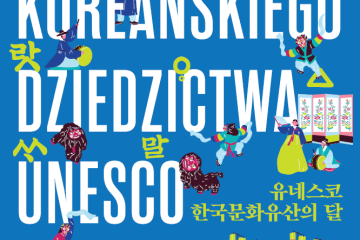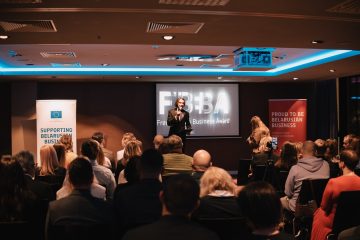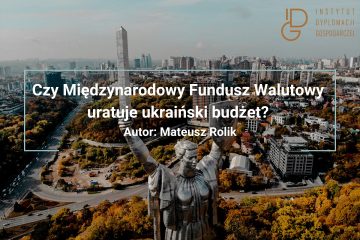With its share of 14% of world’s trade in goods, the European Union (EU) is among the most prominent global players in international trade (Eurostat, 2022). In terms of trade in services, the EU recorded the immense value of 1,771,048 million US dollars in 2016, in both export and import combined (OECD, 2016). Over the last years, the EU, which negotiates on behalf of its 27 member states, has proven its strong position by reaching favourable trade agreements with numerous countries and regions worldwide. Indeed, the EU is a world-leading actor and has the capacity to influence or even shape thy dynamics of international trade. Nonetheless, the ways in which the EU exercises its power through trade to achieve its non-trade objectives have not been thoroughly explored and explanation of these phenomena is still problematic. The purpose of this paper is to contribute to the debate and answer how the EU exercises its power through different trade activities.
The concept of power
The concept of power is central to the study of International Relations. However, since power is such a broad concept, no agreement has been reached among scholars on its universal definition (Baldwin, 2002). Realists tend to associate it with, or even measure it by, possession of certain resources (e.g., population, size of territory, military expenditure), or intangible factors, such as the quality of political leadership (Baldwin, 2002), whereas others apply a relational power approach which assumes that power is the ability to influence and control how other actors in the international system behave (Dahl, 1957). They claim that power should not be viewed as static, but as dynamic and active.
Visible power
The most explicit and direct forms of power can be described as visible. The assumption is that decision-making processes are observable, thus, by seeing who participates in arenas, winners and losers (or the powerful and the powerless) can be easily identified (Gaventa and Pettit, 2011). Visible forms of power usually stem from legal authority and can be noticed in formal decision-making bodies or public spaces where ’actors’ interests are expressed as ’policy preferences’ and one can gauge how often these preferences win out over those of others” (MacDonald, 2011, p. 35).
The visible power exercised by the EU can be observed in its attempts to influence the behaviour of Russia following the attack on Ukraine in February 2022. The EU has adopted comprehensive and robust packages of restrictive sanctions designed specifically to diminish Russia’s economic base. Despite some criticism and controversy surrounding the effectiveness of sanctions, the international organisation instrumentalised its trade power by enforcing a series of restrictive economic measures (e.g., import and export bans, asset freezes, and prohibition of certain business-relevant services) in order to force the violator to agree to a political settlement. By imposing clear economic and political costs on Russia’s political elite, the EU did not only cripple the Kremlin’s ability to finance the invasion but it also internationally denounced Russia’s actions for threatening the independence and territorial integrity of Ukraine (European Commision, 2022). This demonstrates that the EU is able to implement trade sanctions to influence or limit another actor’s actions if these are in inconsistent or in conflict with the EU’s preferences.
Hidden power
The ’powercube’ also incorporates more implicit and exclusive form of power, namely, the hidden power. Dominant actors can exercise their power by agenda setting, framing issues, limiting alternatives, and creating barriers for participation in decision-making. All these activities help in controlling the game as the rules are more favourable to those in power. As famously suggested by Schattschneider (1960, p. 71), ‘mobilisation of bias’ occurs when ‘some issues are organised into politics while others are organised out’. This indicates that the source of power may lie in filtering out or simply ignoring certain issues while drawing attention to other matters, consequently, limiting the capacity of some actors to challenge or change the status quo.
Invisible power
The least direct and obvious form of power is referred to as invisible. Invisible power involves the diffusion of standards, values, ideologies and principles by dominant actors, which are adopted by powerless actors unaware that they cease to have their own interests and preferences in the process (Gaventa and Pettit, 2011). As highlighted by Lukes (2005, p.82), dominant actors are unconsciously able to ”secure compliance [of the powerless] by controlling their thoughts and desires”, and also ”by stunting or blunting their capacity for rational judgment” (Lukes, 2005, p.115). Thus, power can be also viewed as a passive capacity that does not have to be exercised to influence other actors behaviour. Such conceptualisation is in agreement with Cranston’s (1971, p.177) stance: ’the mere reputation for power, unsupported by acts of power, can be sufficient to restrict (…) decision–making’.
Conclusion
The ’powercube’ framework has helped to demonstrate that the EU has the capacity to and exercises its power through trade. Using the example of restrictive sanctions against Russia, it was shown that the international organisation attempts to achieve its non-trade objectives by instrumentalising certain trade-related activities. The EU also uses more implicit methods such as the Ex ante conditionalities in order to impact domestic arenas of its trade partners. Furthermore, the EU has the ability to influence behaviours of states by passive diffusion of norms and values. Owing to its reputation and leading position in leading multilateral institutions, it has the capacity to unconsciously set standards, frame decisions and shape objectives of other actors. Discussions on the definition and dimensions of power are crucial since how the concept is understood and perceived affects how much power is allocated to different actors.
Author: Przemysław Kurlandt
References
Baldwin, D. (2002) ’Power and International Relations’, in Handbook of International Relations, eds. Carlsnaes, W., Risse, T. and Simmons,B. A. London: Sage. pp. 177-191.
Crenson, M.A. (1971) The Un-Politics of Air Pollution: A Study of Non-Decisionmaking in the Cities.Baltimore: Johns Hopkins University Press.
European Commission (2021) Ex ante conditionalities. Available at: https://ec.europa.eu/regional_policy/en/policy/what/glossary/e/ex-ante-conditionalities (Accessed: 5 Apr 2021).
European Commission (2022) EU restrictive measures against Russia over Ukraine (since 2014). Available at: https://www.consilium.europa.eu/en/policies/sanctions/restrictive-measures-against- russia-over-ukraine/ (Accessed: 5 Jun 2022).
Eurostat (2022) International trade in goods. Available at: https://ec.europa.eu/eurostat/statistics- explained/index.phptitle=International_trade_in_goods#:~:text=The%20EU%20accounts%20for%20around,harder%20to%20trade%20across%20borders (Accessed: 20 Mar 2021).
Gaventa, J. and Pettit, J. (2011) Powercube: an introduction to power analysis. Available at: https:// www.powercube.net/analyse-power/forms-of-power/invisible-power/ (Accessed: 28 Mar 2021).
Hadfield, A. (2007) ’Janus advances? An analysis of EC development policy and the 2005 amended Cotonou Partnership Agreement’. European Foreign Affairs Review. 12(1). pp. 39-66.
Lukes, S. (2005) Power: A Radical View. Basingstoke: Palgrave Macmillan.
Koch, S. (2015) ’A Typology of Political Conditionality Beyond Aid: Conceptual Horizons Based on Lessons from the European Union’. World Development. 75(1). pp. 97-108. https://doi.org/10.1016/ j.worlddev.2015.01.006.
MacDonald, D. (2011) ’The power of ideas in international relations’, in Regional Powers and Regional Orders, eds. Godehardt, N. and Nabers, D. London: Routledge.
OECD (2016) OECD Data: Trade in goods. Available at: https://data.oecd.org/trade/trade-in- goods.htm#indicator-chart (Accessed: 5Apr 2021).
Schattschneider, E. E. (1960) The Semi- Sovereign People: A Realist’s View of Democracy in America. New York: Holt, Rinehartand Winston.
Schmidt, B. C. (2005) ’Competing Realist Conceptions of Power’. Journal of International Studies. 33(3). pp. 523-549. doi:10.1177/03058298050330031401
Skolimowska, A. (2012) ’The European Union as a ‘Normative Power’ in International Relations. Theoretical and Empirical Challenges’.Yearbook of Polish European Studies. 18(1). pp. 111-131.


